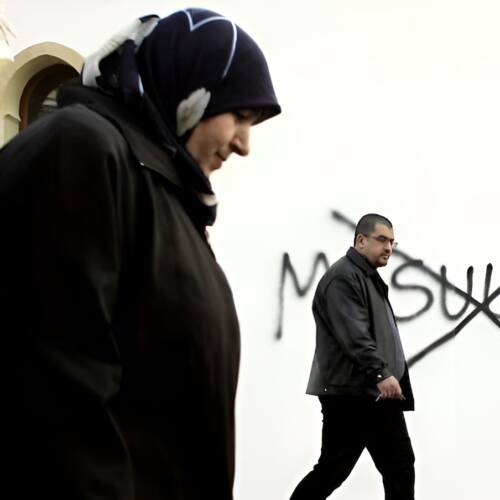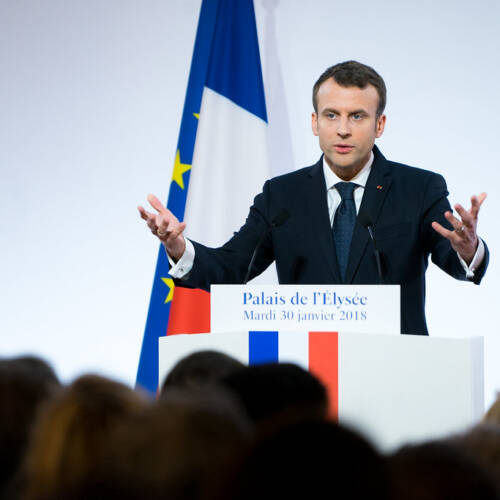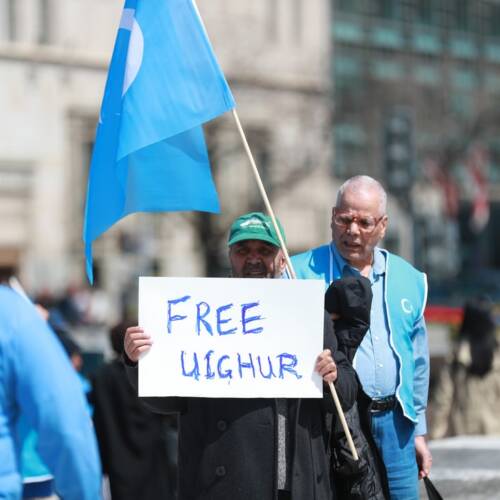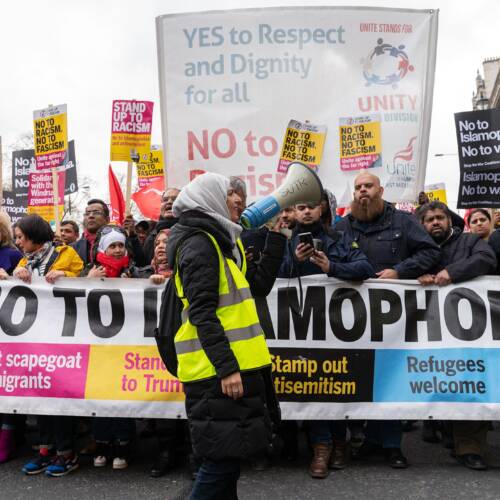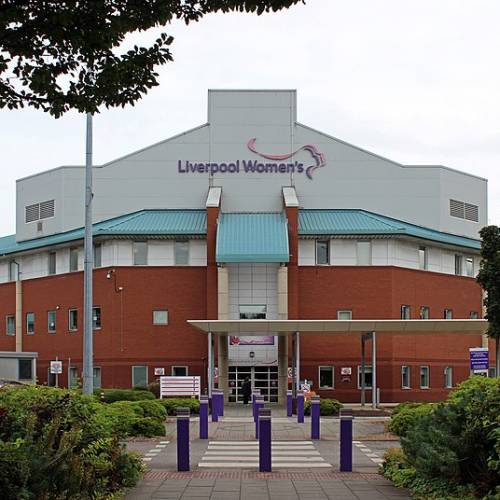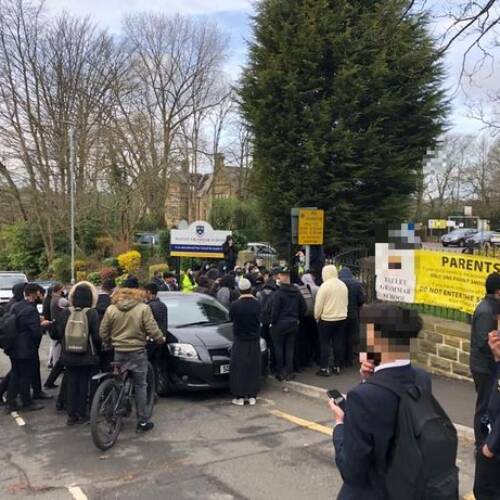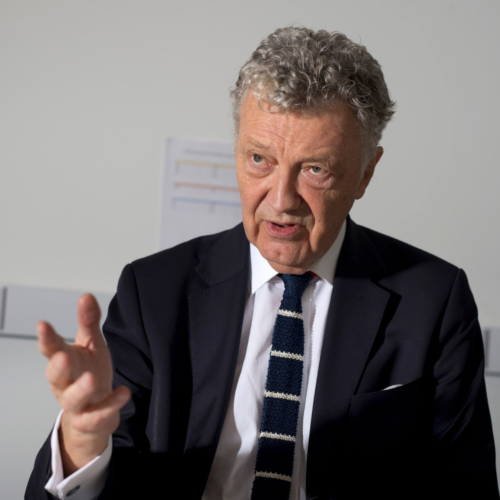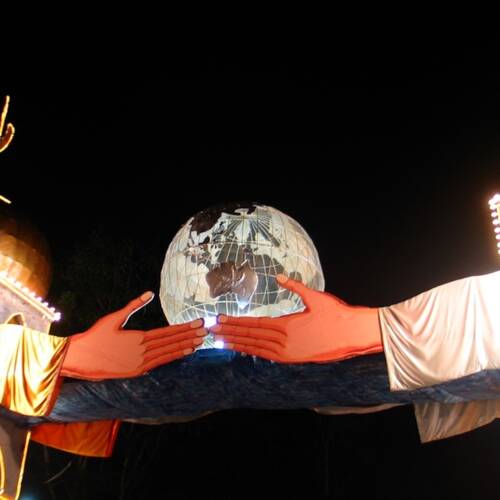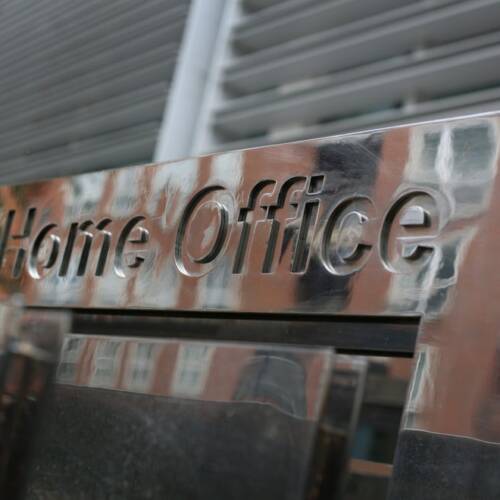
What is the Future of Muslims in Post-Election Britain?
17 Dec 2019Over the weekend following the election results, I came across a headline in the Metro which read: ‘British Muslims prepare to leave the UK after Boris Johnson wins election.’ This article featured a man who runs a Muslim charity based in Manchester, expressing his worries about his future and that of his kids, which have led him to explore the idea of leaving the UK altogether. It seems from this, as well as many discussions I have seen take place among Muslims on social media, and in mosques, that an overwhelming sense of fear has come about within Muslim communities. Subsequent to Boris Johnson’s landslide victory in the election, many are deeply concerned about their fate living in the UK. How can we envisage the next 5 years under a government that – time and time again – has proved to be largely tolerant of Islamophobia?
In the last few years we have witnessed a sharp rise in verbal and physical attacks against religious minorities, many of which have gone unaccounted. As a result, targeted communities are feeling increasingly insecure and unsafe. While this is a real concern, and religious discrimination is undoubtedly an issue in Britain today that needs to be tackled, I wonder how far it is truly impossible to visualise a future in this country wherein minorities are protected and their rights guaranteed?
Relocating to another country may seem like an obvious route to escape the uncertainty and risks that face us minority groups. However, I firmly believe that such a measure would not only mean surrendering to hate and allowing it to defeat us – undermining our deserved status as equal citizens and contributors to British society – but it is simply not a feasible option for many who have spent years working hard to establish themselves and their families in this country.
If we are to see a future in this society, it is imperative that all communities who feel vulnerable to targeted aggression and bigotry work together to protect each other and strengthen the fabric of our society. In an exchange with women’s rights campaigner and activist Aisha Ali Khan, she articulated this precisely: “by working together as minority groups we can help overcome the mistrust and fear we hold against each other, and recognise that we are communities that have more in common than not.”
Akeela Ahmed, social entrepreneur and activist, also echoed these sentiments: “Britain is one of the most successful multi-faith, multi-ethnic, multi-cultural and integrated countries in the world. It is by no means perfect and there are issues and challenges facing us, with increasing Islamophobia being one of the greater challenges. However the way to overcome these challenges is for all of us to come together as citizens, to challenge bigotry, discrimination (in all its forms) and inequality. We must not let a minority of hateful people make us feel unwelcome or question our indisputable belonging in the UK as British Muslims.”
In the current era, we simply need to switch on the news to see that there are challenges everywhere, and persecution of various kinds are prevalent in all parts of the world. It is our duty as Muslims to take the best course of action in our respective situation and circumstance. Our faith is one which prioritises peace and harmony within society, and we must embody these principles in whichever location we find ourselves.
Khan also added: “Muslim communities cannot thrive if isolated, and our faith does not teach us to segregate ourselves from society. By interacting with the wider community, we develop confidence, new ideas, better job opportunities and life chances than if we stick to our own religious and ethnic communities.”
While the overall election results may be disheartening for many, what was really promising to see during this period especially, is the active role that Muslims across all factions of society played in engaging with the election process. Mosques and community centres organised a national Muslim voter registration day and encouraged members to read up on the policies of different political parties that affect them specifically. This year, there has been a record number of Muslim MPs elected across the country. Our Parliament is the most diverse that it has ever been. This is the sort of active involvement that can lead to the change that we wish to see in the long-run. But we must be persistent.
Now that the elections have passed, our duty to participate in politics has not lessened, but become even more essential. There are a number of issues which we must now turn our attention to.
To begin with, it is critical that we put pressure on the government to take active steps to heal the disillusionment felt by religious communities. Particularly in the lead up to these elections, numerous cases of Islamophobia and anti-semitism within the major political parties came to the attention of the public. Many members of these parties either incited or promoted racist or discriminatory rhetoric, and were not dealt with effectively. In order for religious communities to feel protected and secure as citizens of this country, we must see zero-tolerance from the government for hate-speech and cases of abuse on the basis of faith and ethnic background.
As a community, we must be at the forefront of directing the changes that we want to see implemented. As Khan suggested, we should “work with existing lobby groups and our MPs to help them push through the definition of Islamophobia.” The pushback against Islamophobia needs to start by urging the government to adopt a clear definition of the term. With official and legal recognition of an appropriate definition, we can ensure that perpetrators are held accountable for their actions with more efficiency and severity.
Along with this, we as Muslims should become proactive in helping those who have been most adversely affected by the government’s austerity measures. We can do this by contributing to food-banks, aiding those who live in destitution, caring for the elderly and infirm, standing up for what is just and defending the rights of all communities.
Allah tells us in the Holy Qur’an that He will not change the state of a people until they change what is within themselves. We as Muslims have a duty to utilise our God-given potential and position to give back to society and help the vulnerable amongst us in the best way we can. We don’t need to disengage, become fed up or silence ourselves if we don’t see immediate results. Rather, we must take advantage of the rights afforded to us by our faith and by law to initiate long-term change for our future and that of generations to come.






